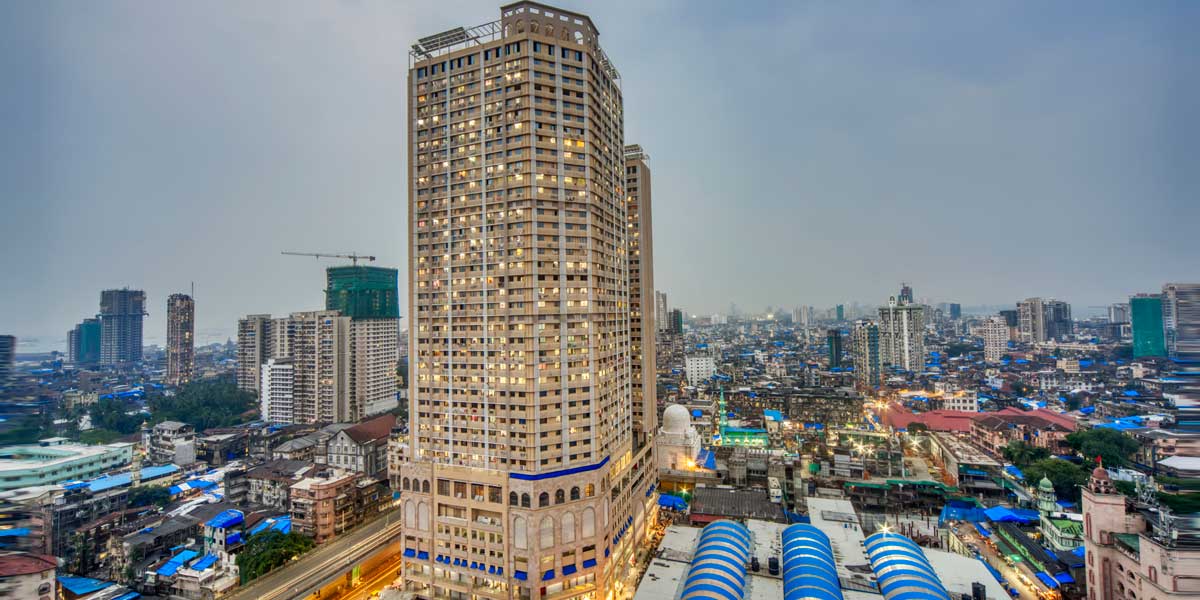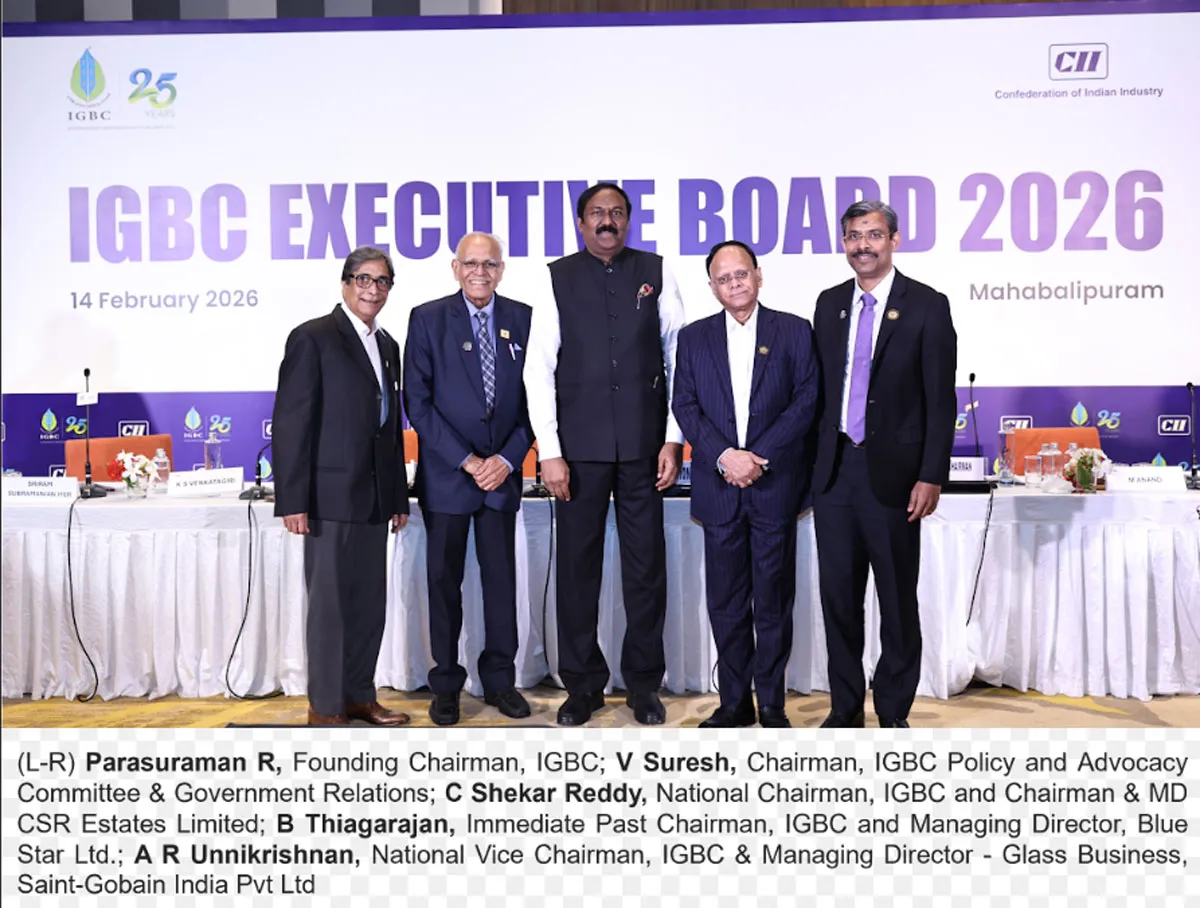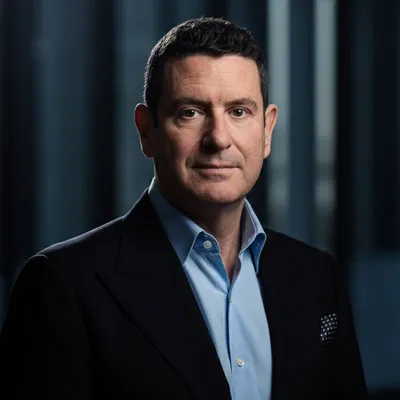The Bhendi Bazaar Redevelopment Project in Mumbai has created a model that primarily centres on the lives and requirements of its residents who have been a part of the neighbourhood for several generations. Identifying a clear path for progress on social, economic and environmental fronts is crucial to the holistic redevelopment of any urban community. Even though these pillars are more macro in context, the impact of their evolution trickles down to the community and its people, writes Mallikarjuna Rao, Senior General Manager, Design & Architect, Saifee Burhani Upliftment Trust.
A sustainable neighbourhood holds value as a place for generations to live and thrive over the years. They preserve the socio-cultural threads that connect the community and improve and sustain the economic and environmental ecosystem contributing to a more significant cause. While this thought is strongly prevalent for future smart cities, only recently has it been applied to redevelopment. By promoting responsible urbanisation and revitalising degraded areas, redevelopment initiatives now demonstrate the positive impact an effort like this can have. In the densely populated metros of a country like India, the need for sensitive redevelopment and efficient usage of scarce urban space is of utmost importance.COMMUNITY AT THE CENTRE OF DEVELOPMENT
An aspect of redevelopment that is just as, if not more important as the infrastructural upgrades, is consciously keeping it people-centric. A community thrives when its people are allowed to progress socially, economically and environmentally.
The Bhendi Bazaar Redevelopment Project in Mumbai has created a model that primarily centres on the lives and requirements of its residents who have been a part of the neighbourhood for many generations. It has features like community spaces for residents to engage with friends and family in, increased green cover for better health and air quality, upgraded locations for the small businesses, enhanced educational and health facilities, convenience stores as part of the commercial development, religious and community spaces for cultural activities.
The residents of Bhendi Bazaar have most facets of their day-to-day lives catered to with the redevelopment, which is ideally what the goal of every redevelopment project should be – the well-being of all inhabitants.
CONNECTING PUBLIC REALMS
The aim of sustainable redevelopment is not limited to only upgrading shops and houses but the entire social and cultural infrastructure. To ensure that a redeveloped neighbourhood is holistically sustainable and remains viable for future generations, there is a crucial need to have an integrated planning approach to redevelopment. The revitalised urban plan focuses on providing walkable public spaces within and opportunities for affordable, efficient and environment-friendly connectivity for residents to other employment and recreational hubs across the city.
In addition, a well-developed neighbourhood with a distinct identity also draws people from other parts of the city to experience the public spaces, allowing businesses within the community to thrive. This, in essence, is the continuation of the character of the neighbourhood. Inclusive development of this nature lays the foundation for optimal economic activity, long-term sustainability, equal access to resources and opportunities and overall socio-economic upliftment of the community. Similar examples of inclusive planning are Singapore’s recent Land Transport Master Plan, 2040, Melbourne’s long-term land-use plan (Plan Melbourne), and Israel’s Smart Commuting Project among others.
LIVEABILITY & WELLNESS QUOTIENT
Waste generation is a natural corollary of urbanisation. In developing countries, the environment and health of residents are usually adversely impacted due to ineffective waste management. The present system of waste management, such as landfilling, is resource-intensive and hazardous due to the emission of large amounts of greenhouse gases like methane and CO2, and other toxic substances that leech into the land polluting the soil and groundwater.
Therefore, sustainable living extends to the health implications of waste management, or the lack thereof. An efficient and hygienic way of waste management involving segregation of waste, recycling and organic composting is planned on a sector-wise basis of the overall development, which caters to the ever-growing population of the neighbourhood.
This coupled with conscious creation and maintenance of green cover, open recreational spaces and flexible public realm that can accommodate multiple uses as per the occasion, and contribute significantly to the physical and mental well-being of residents, many of whom were previously crammed into smaller spaces, thereby boosting their quality of life. The benefits of such revitalisation are shared equally with the existing residents and those proposed to be housed afresh, thus highlighting the inclusive nature of the development, a feature that distinguishes this planning from the other redevelopments in the city.
Apart from the environmental benefits, fostering a green infrastructure also trickles down to enhance the economic and social framework of the community, which translates into far more holistic redevelopment. While this approach to sustainable urban planning has had its fair share of awareness in the past, the Covid-19 pandemic has only accelerated the need for its more substantial implementation.
Outlining a clear path for progress on social, economic and environmental fronts is crucial to the holistic redevelopment of any urban community. Even though these pillars are more macro in context, the impact of their evolution trickles down to the community and its people. Furthermore, it helps create a model for a thriving, sustainable community to be emulated across other urban regions. Sustainability in redevelopment often seems daunting at the beginning, but its contribution to the socio-economic development of the country is undeniable, and it helps immensely to mitigate the adverse impact of urbanisation on the environment.
Mallikarjuna Rao is Senior General Manager, Design & Architect at Saifee Burhani Upliftment Trust that is undertaking the Bhendi Bazaar Redevelopment Project





















